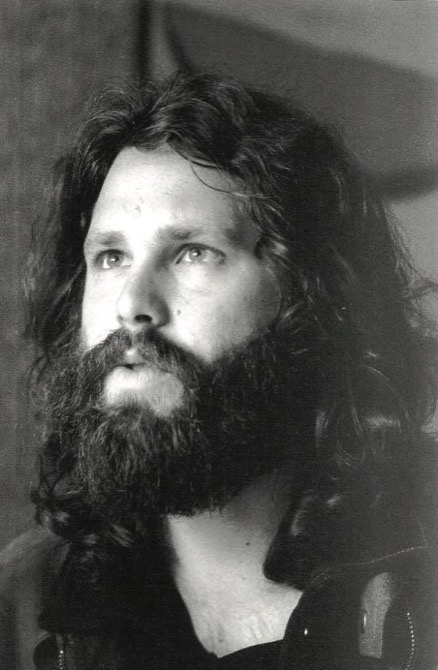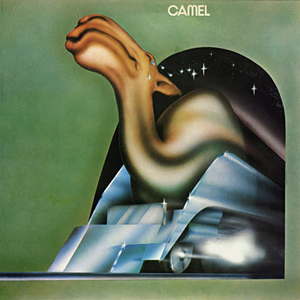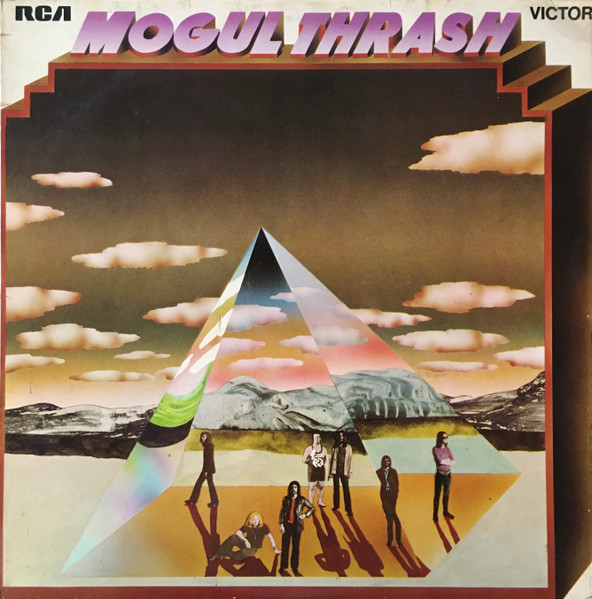
Almost nine months later....
 Chapter IV: Waiting to Exhale:
Chapter IV: Waiting to Exhale:
A Breath of Fresh Air
One year into the new decade and it wasn’t quite an all-out assault or a revolution in the world of rock music. While some interesting albums would be released in 1971, it’s probably fair to say that many of them would go unremarked and indeed quite gently into that dark night, never to be heard from again. There are exceptions of course and we’ll get to those, but even compared to the previous year the amount of new bands getting together this year is far far smaller. There are two major ones - one of which I fail to see how they had anything at all to do with progressive rock - and one band quietly disbanding, about whom I imagine those who cared could be counted on the fingers of one hand, but no major events really. Many of the bands who had been formed in 1970 did release their debut album this year, and bands already established would release albums too, some good, some bad.
In general, I would have to say it feels as if, to quote
Joseph and the Amazing Technicolour Dreamcoat, the world was waiting, or as one of our football commentators once put it, a nation held its breath. 1971, for me, and for progressive rock, seems more like a sort of year of marking time, a holding pattern, the calm, if you like, before the storm. 1972 would see some classic albums hit the shelves and some reputations made, and prog rock would begin to take its stranglehold, not on the charts (never that) but on the record-buying public, or to be more precise, the album-buying public. As noted earlier, progressive rock can almost be credited solely with the rise of the album as opposed to the single, and over the early to mid 1970s the sale of albums went through the roof. But for now, those who wanted the albums bought them but bands such as Genesis, Yes, The Moody Blues and others were yet too fresh and new to have legions of fans as they do now, and it was, in general, only the fans who bought the albums.

Perhaps it’s appropriate that music was a little less out front in 1971; the world could very well have been said to have been holding its breath. The Vietnam War dragged on, showing no signs of ending, and offering no hope of victory, while Richard Nixon’s presidency hurtled towards its ignominious termination, the Watergate scandal due to break the following year. After the initial enthusiasm surrounding Apollo 11 and the fear and relief attending the abortive Apollo 13 missions, people had become bored with NASA’s attempts to continue to send men to the Moon. A real case of “been there, done that” as a growing unease was felt over the colossal sums being spent to visit, not even colonise the Moon, money which could, said an increasing number of discontented voices, be better spent at home. The Manson trials ended in guilty verdicts and death sentences that would never be carried out, giving the world’s most infamous serial killer after Jack the Ripper the last laugh, as he became a dark celebrity, and not happy with having the quagmire in Southeast Asia to deal with, Nixon declared another completely unwinnable war, this one on drugs.

So perhaps the time was right for an escape. Things were dark in 1971, certainly in the USA, which might go some way towards explaining how some of the first American progressive rock bands formed at that time, but the news is worldwide and so the world was watching reports of the daily death tolls Vietnam was exacting on America’s youth, and things looked bleak. In music, we were reminded of the loss of Janis Joplin the previous year, with her final album released as this one began, three months after her passing, ZZ Top exploded (not) onto the scene with their suitably low-key titled album
ZZ Top’s First Album while old campaigners like Elvis, Barbara Streisand, Johnny Cash, Andy Williams, Carly Simon and Anne Murray continued to churn out albums. Carole King’s wonderful bittersweet album
Tapestry was released, an album which would give major hits to James Taylor and Aretha Franklin, and Elton John would release his first live album while The Doors would see their last in
L.A. Woman following the passing of another legend as Jim Morrison died as he had lived.
An insignificant band from Ireland put out their insignificant debut album this year, though the world would soon learn the name Thin Lizzy, and another son of Erin who would go on to become a byword for Ireland’s musical talent also made his first tentative steps into the world, as the debut self-titled album from Rory Gallagher hit the shops to exactly no fanfare. Heavy rock was coming of age, and bands like Blue Cheer and MC5. who had led the initial charge, would now step aside in favour of the new guard, championed by Budgie, Deep Purple and of course Led Zeppelin.

Like every year, 1971 had its share of famous deaths, but somehow the death of Jim Morrison, so young and coming so hard on the heels of the passing of another American icon in Janis Joplin must have made it doubly hard to take among the music community, especially in America. The passing of legendary war hero and actor Audie Murphy might have underlined that the days of World War II were long gone, with America embroiled in a war that had no room for honour or mercy, and was fought on completely different principles even to that conducted in the Pacific theatre. The death of two Disney legends, though probably unremarked at the time - Walt’s brother Roy and Mickey Mouse main creator Ub Iwerks - could have been seen as a message to the USA that the fun was over, and that from here on in they could expect only heartache and sorrow.
But waiting in the wings were a whole host of bands, some of whom would survive, some of whom would thrive, a few of whom would go on to dominate the seventies, who were willing to try to draw people’s attention away from the day-to-day nastiness of the world, and back to a simpler time, or even a made-up, fantasy time, maybe even other worlds, in an attempt to put the harsh reality of the early years of the decade if not behind them, then at least in a corner where they could, for the duration of an album, be forgotten about. Most of these bands had already made tentative overtures towards the public, and in some cases had been well received, in others ignored, but if the latter that was not going to stop them. The progressive rock movement was about to gather momentum, and in a few years it would power forward, steamrollering over the music scene and giving emerging trends like disco and even hard rock a run for their money.
Lungs were filled, and ready to exhale, blowing a fresh, if imaginary, wind across the troubled landscape of a world desperately searching for an escape, for respite, for rescue, even if only temporary.
The long-haired and in many cases bearded riders of the new dawn were saddled up and ready to go.





















 I guess one thing I can take with jazz is the piano, and there’s some nice ivory-tinkling here from Mike Rathledge, though mostly it’s very much brass-driven. Not my thing at all. This will already be getting a low Personal Rating score from me.
I guess one thing I can take with jazz is the piano, and there’s some nice ivory-tinkling here from Mike Rathledge, though mostly it’s very much brass-driven. Not my thing at all. This will already be getting a low Personal Rating score from me. 
 Linear Mode
Linear Mode
